Lesser Kestrel, Kleine Torenvalk, Rötelfalke, Peneireiro-das-torres, Cernícalo Primilla
Spotted in the Alentejo region of Portugal. Lesser Kestrel sound
The Lesser Kestrel (Falco naumanni) is a small falcon. This species breeds from the Mediterranean across southern central Asia to China and Mongolia. It is a summer migrant, wintering in Africa and Pakistan and sometimes even to India and Iraq. It is rare north of its breeding range, and declining in its European range. The scientific name of this bird commemorates the German naturalist Johann Andreas Naumann.
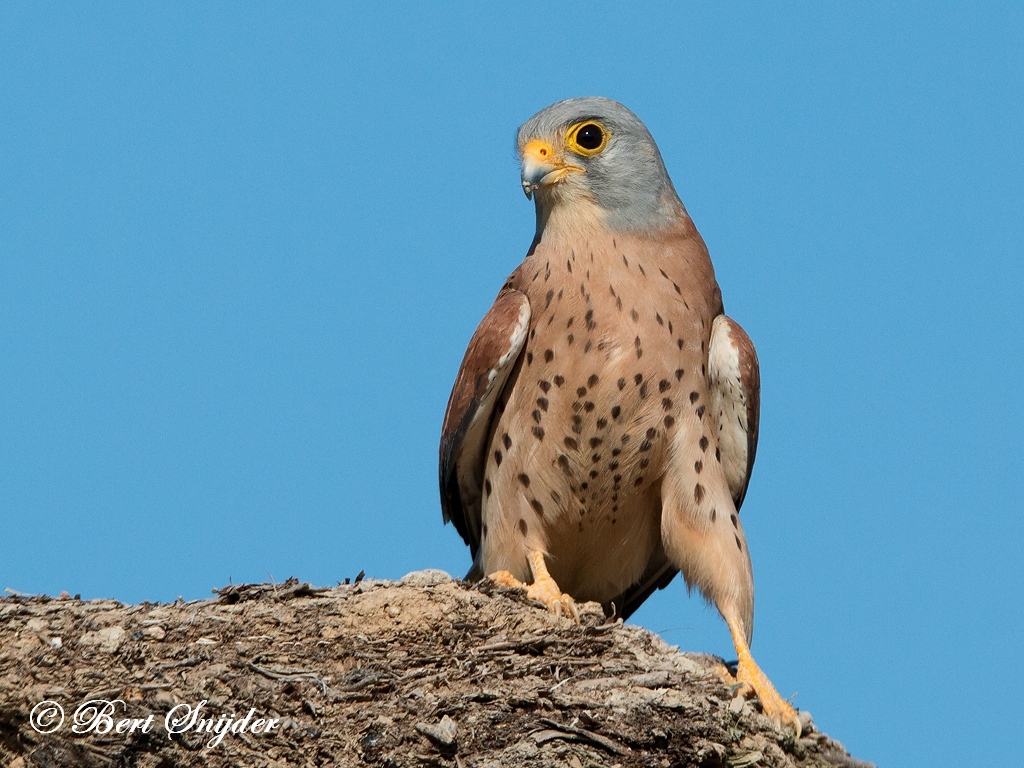
More photos at the bottom of this page:
It is a small bird of prey, 27–33 cm in length with a 63–72 cm wingspan. It looks very much like the larger Common Kestrel but has proportionally shorter wings and tail. It shares a brown back and barred grey underparts with the larger species. The male has a grey head and tail like male Common Kestrels, but lacks the dark spotting on the back, the black malar stripe, and has grey patches in the wings.
The female and young birds are slightly paler than their relative, but are so similar that call and structure are better guides than plumage. The call is a diagnostic harsh chay-chay-chay, unlike the Common Kestrel’s kee-kee-kee. Both sexes do not have dark talons as usual in falcons; those of this species are a peculiar whitish-horn color. This, however, is only conspicuous when seen birds at very close range, e.g. in captivity.
Despite its outward similarity, this species appears not to be closely related to the Common Kestrel. The morphological similarity with the Common Kestrel is most puzzling, but still it appears to betray the present species’ actual relationships: the lack of a malar stripe seems ancestral for kestrels, and the grey wing colour unites the Lesser Kestrel with most other Falco species, but not the other true kestrels.
The Lesser Kestrel is, as the name implies, a smaller and more delicate bird than the Common Kestrel, and it is entirely sympatric in its breeding range with it; they compete to a limited extent. Thus, the possibility that there is some form of adaptive advantage to the similar coloration deserves study. Considering that the Lesser Kestrel would in fact have an advantage if some would-be predators confuse it with the larger species and consequently avoid it, it might be a case of Müllerian mimicry.
The Lesser Kestrel eats insects, but also small birds, reptiles and rodents (especially mice), which are often taken on the ground. It nests colonially on buildings, cliffs, or in tree holes, laying up to 3-6 eggs. No nest structure is built, which is typical for falcons. Recent surveys (January 2007) by LPO have revealed that in their wintering grounds, Lesser Kestrels roost communally – sometimes in huge numbers. A roost discovered in Senegal during one of these surveys held 28,600 birds, together with 16,000 African Swallow-tailed Kites Chelictinia riocourii.
It is widespread and plentiful on a global scale, but in many areas of its range, it seems to be undergoing a marked and possibly accelerating decline. The IUCN has thus classed it as a vulnerable species. This means that the global population and range have declined by some 30% in the last 10 years, and is expected to continue to do so for at least another decade. Apart from possible habitat destruction, it appears that indiscriminate use of pesticides has a strong effect on this species due to its insectivorous habits.
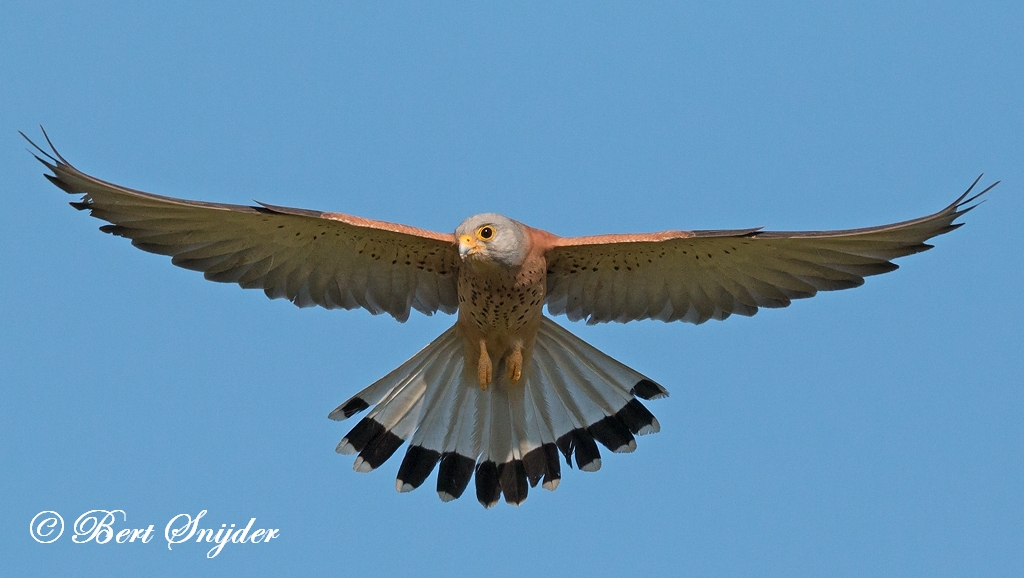
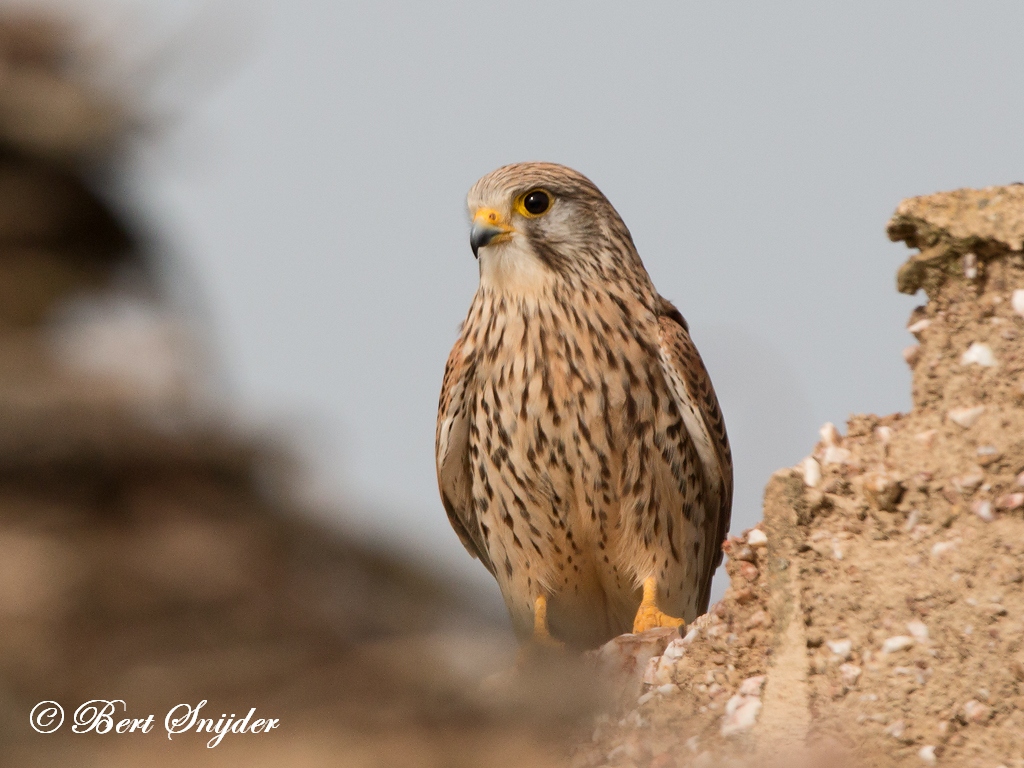
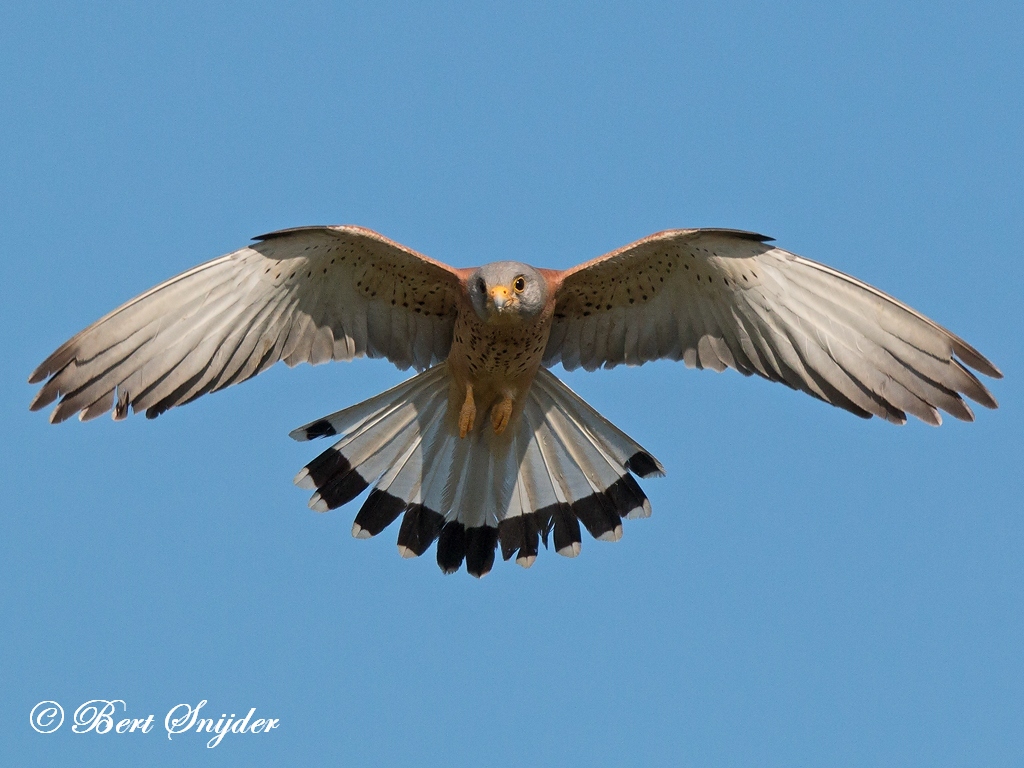
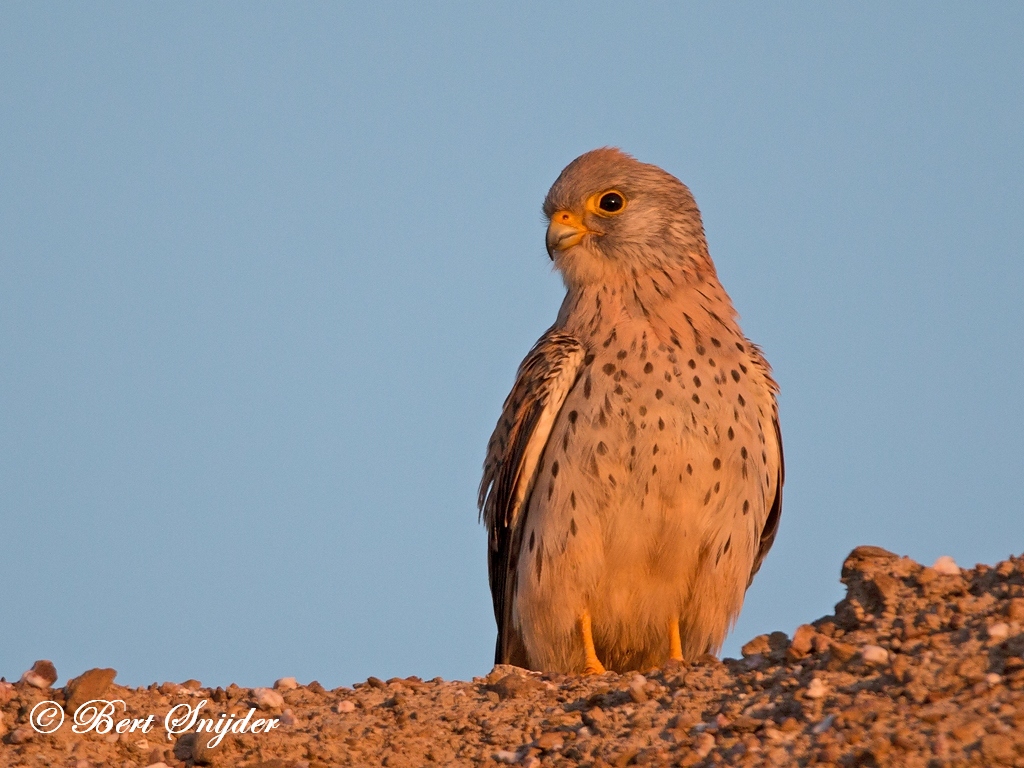
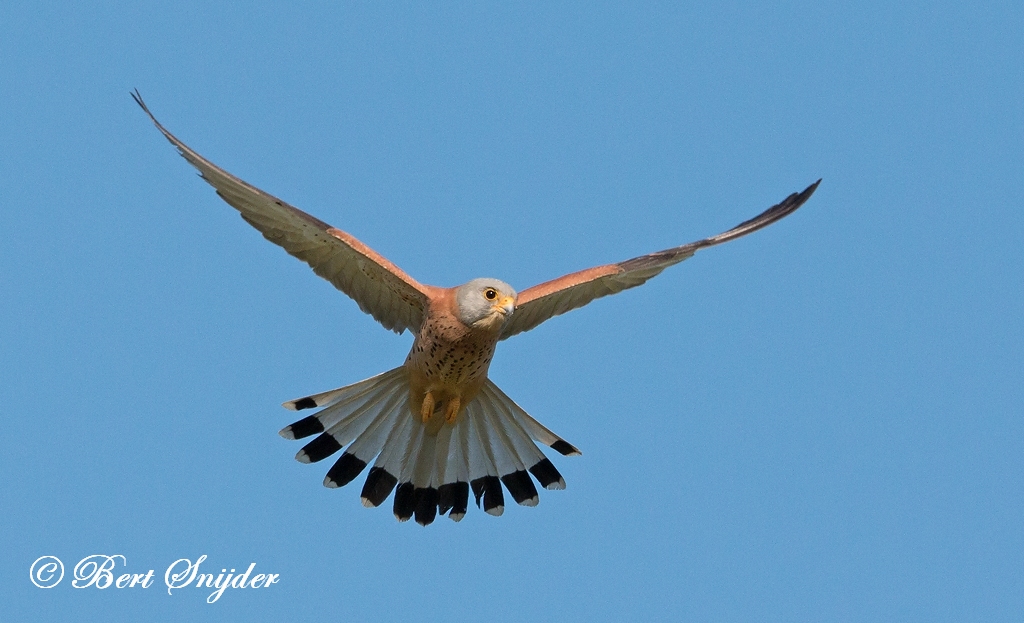
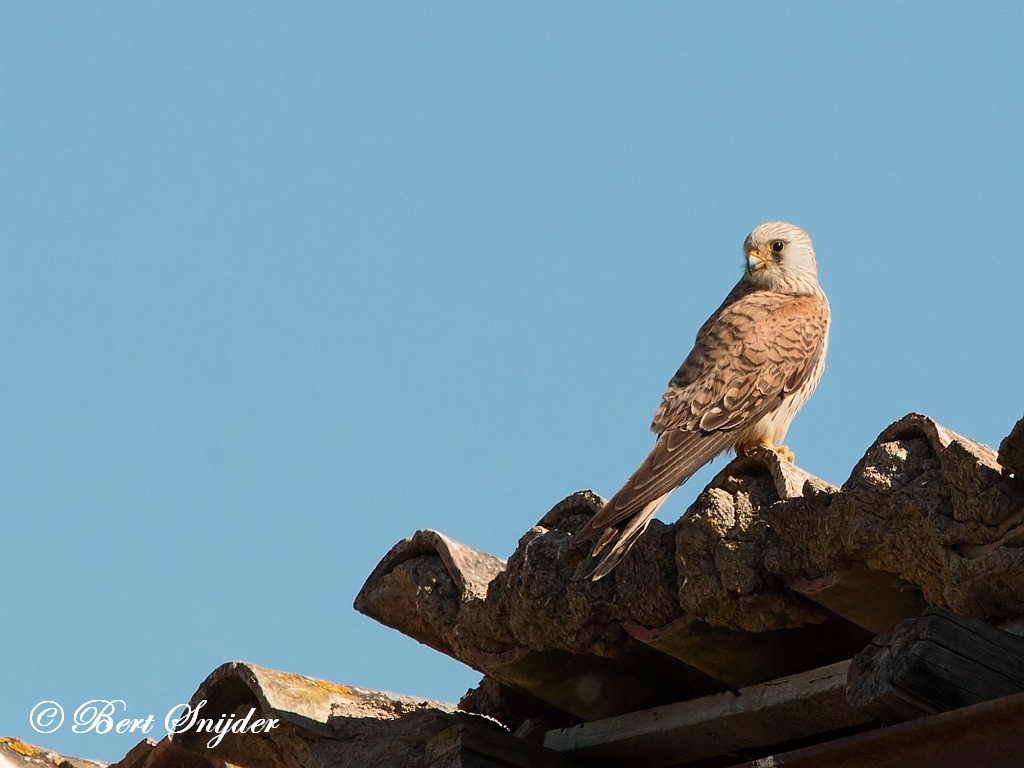
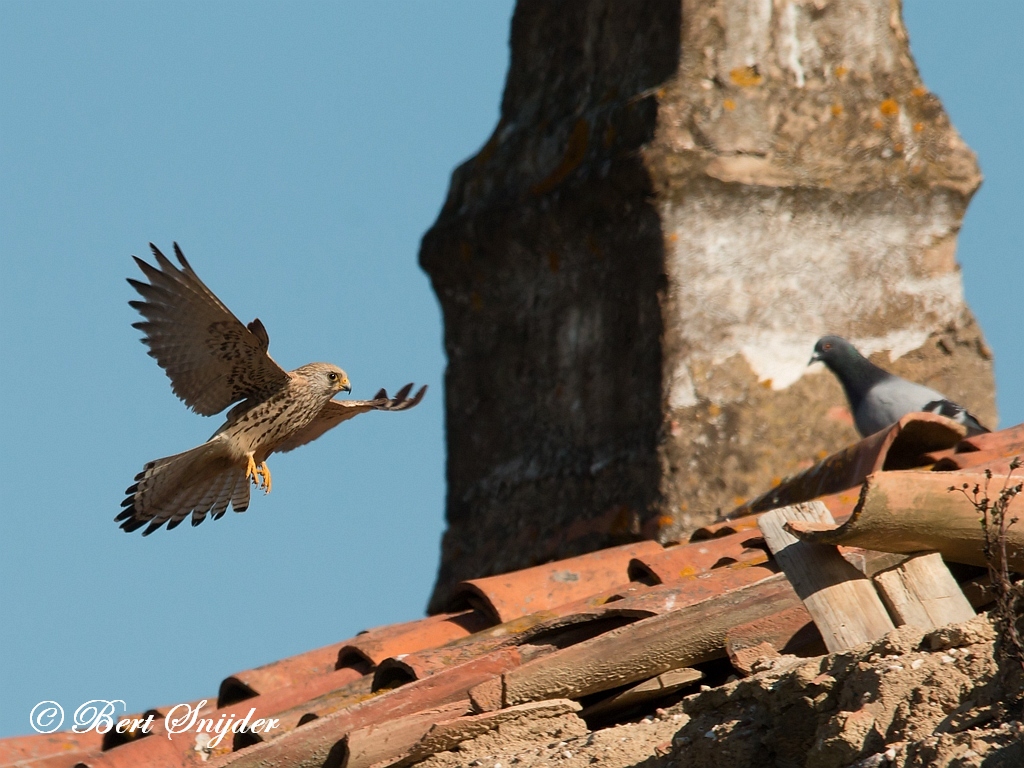
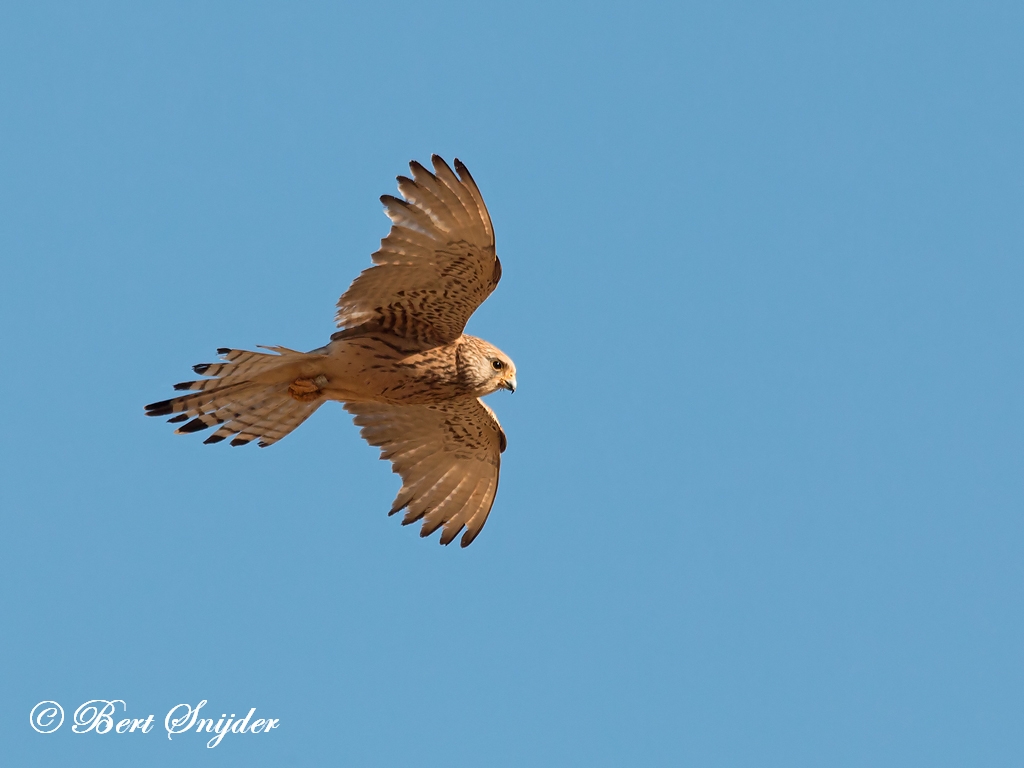
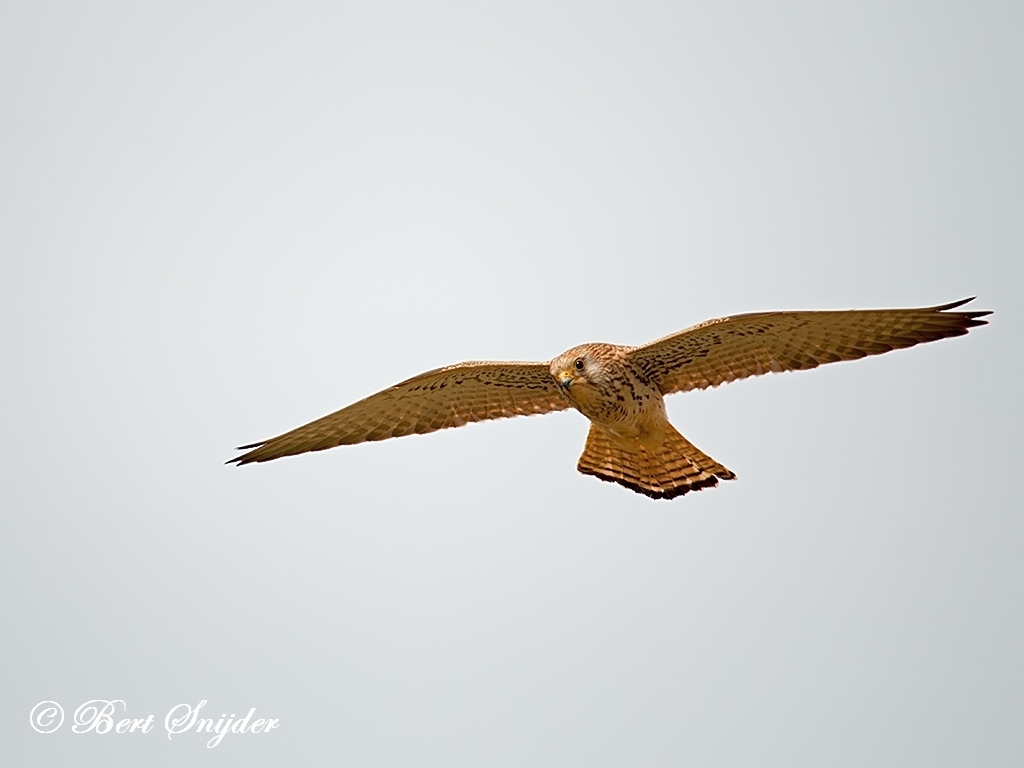
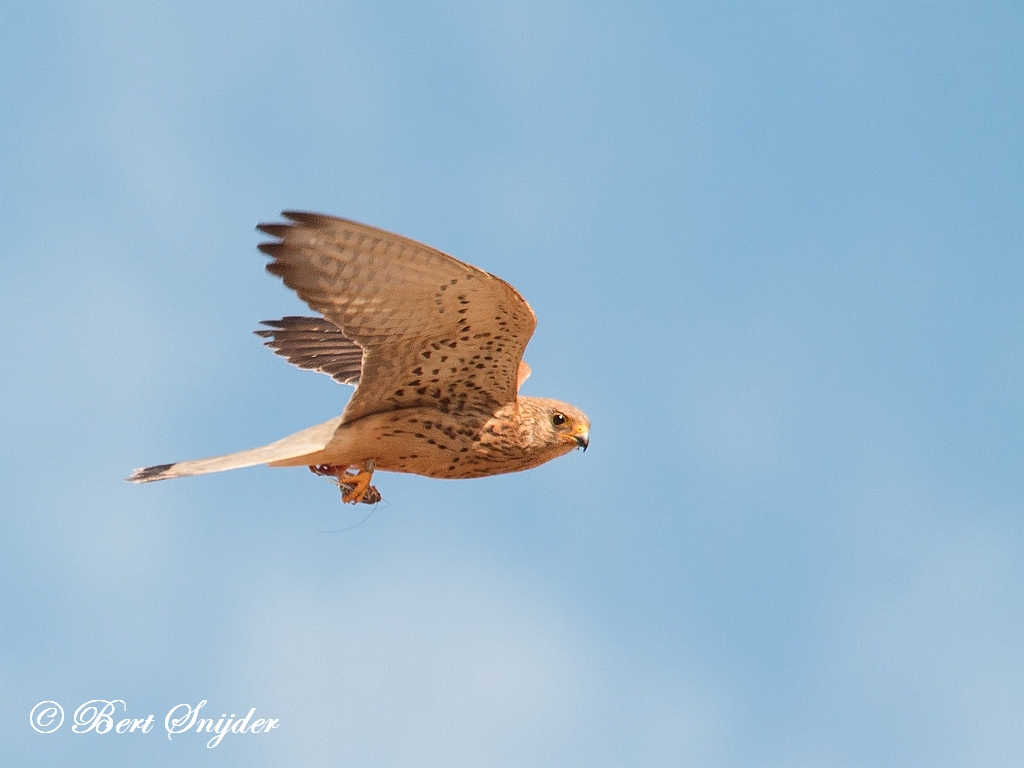
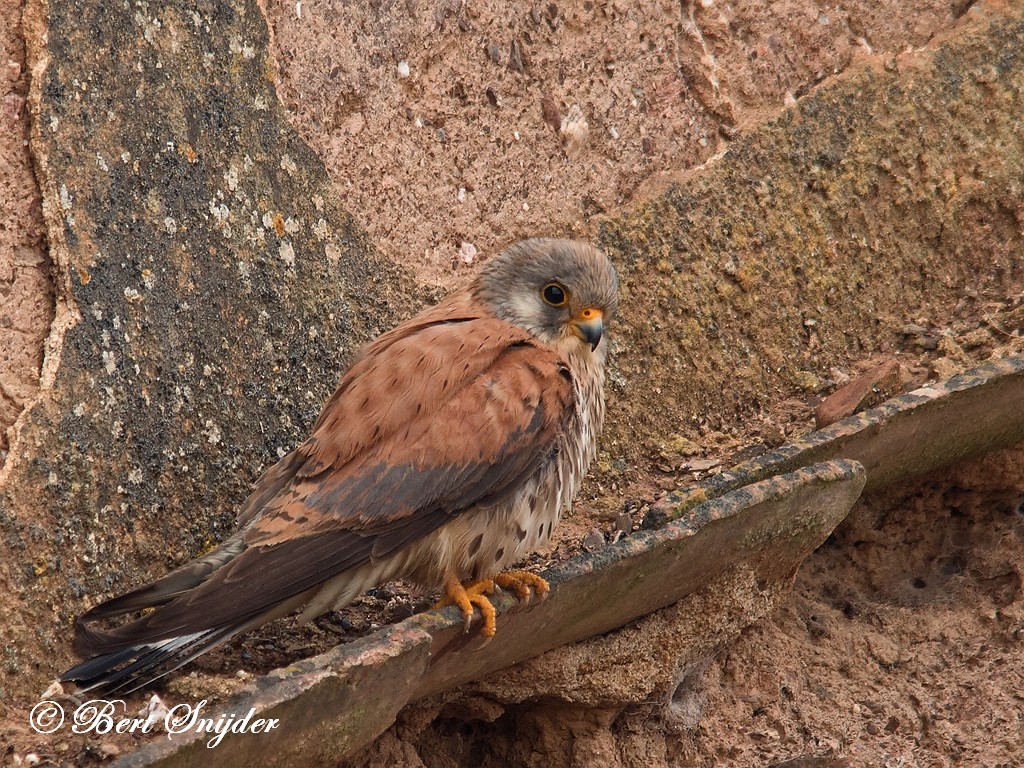
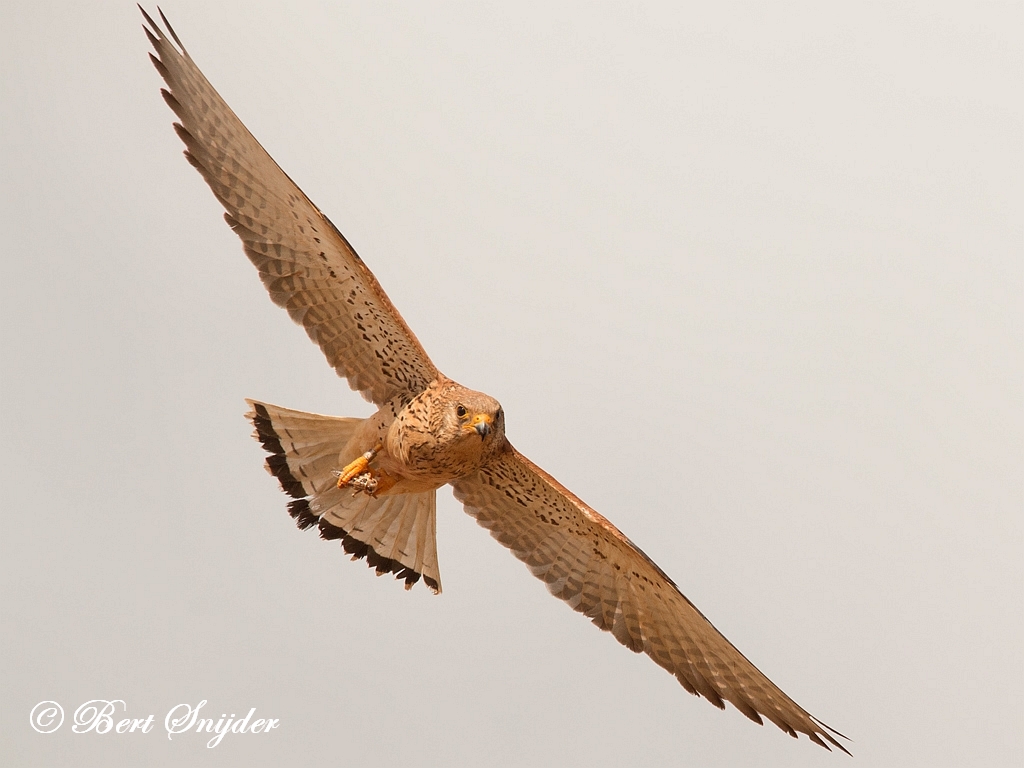
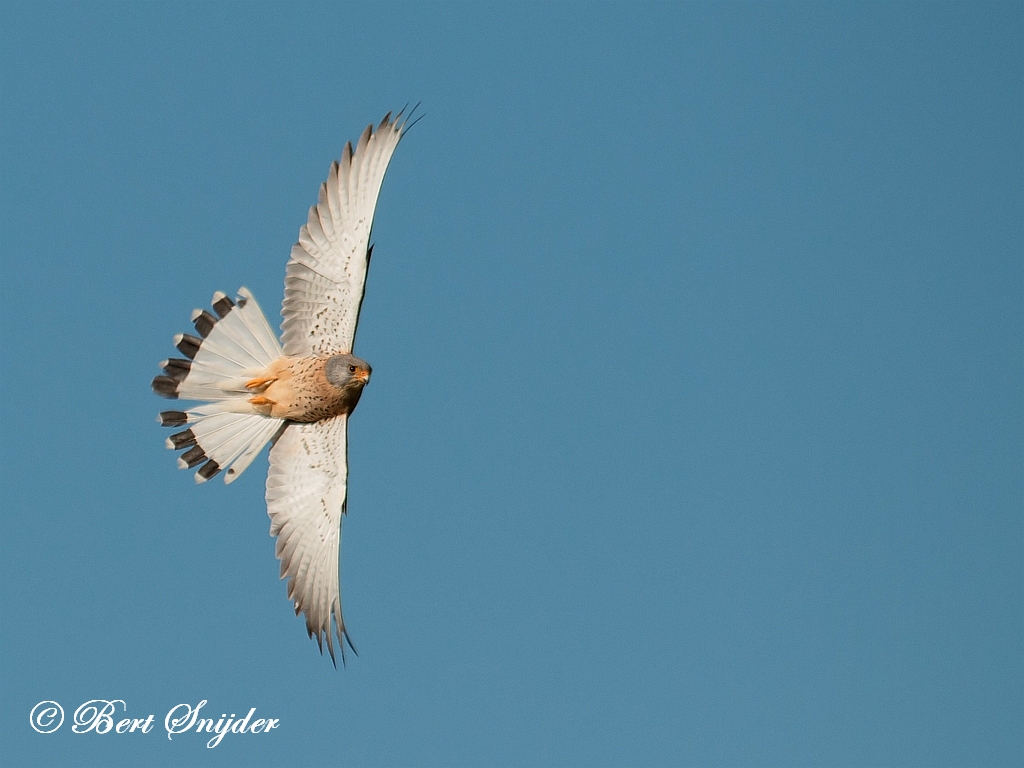
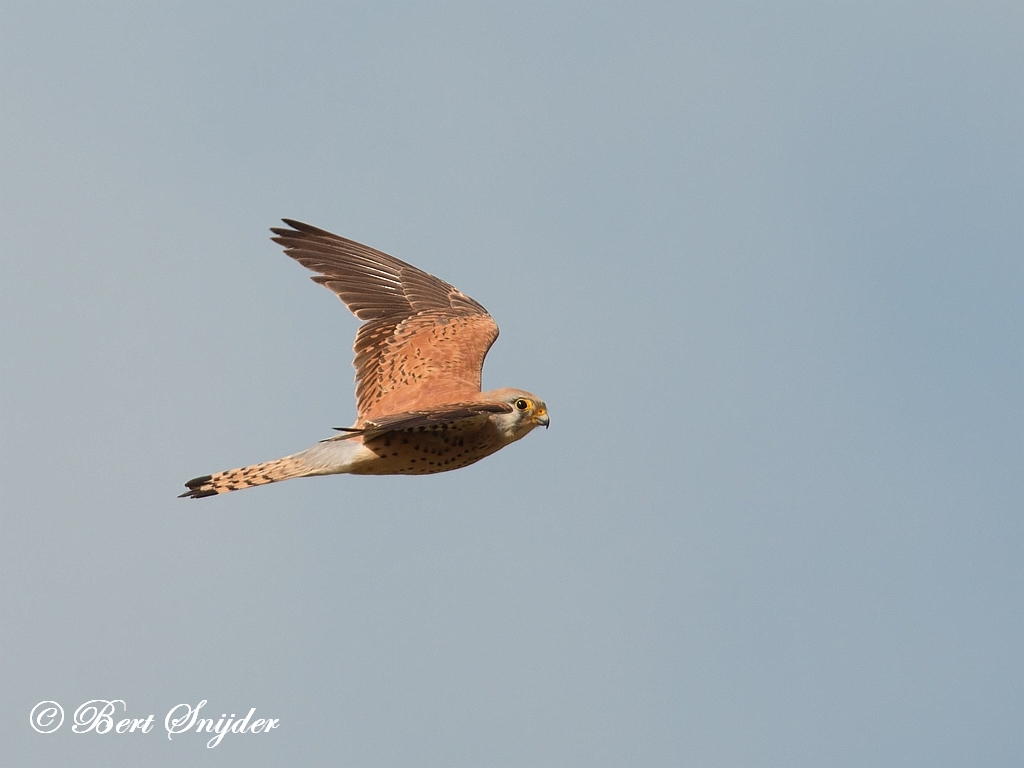
Other synonyms:
Afrikaans: Kleinrooivalk
Azerbaijani: Çöl muymulu
Catalan: Falco cama-roig, Xoriguer petit
Catalan (Balears): Xoriguer petit
Valencian: Falco cama-roig
Czech: Poštolka jižní
Welsh: Cudyll coch lleiaf
Danish: Lille tårnfalk
German: Rötelfalke
English: Eastern Lesser Kestrel, European Lesser Kestrel, Lesser Kestrel, Western Lesser Kestrel
Esperanto: Malgranda turfalko
Spanish: Cernicalo Primilla, Cernícalo Primilla
Estonian: stepi-tuuletallaja
Basque: Etxe belatza, Xoriguer petit
Finnish: Pikkutuulihaukka
Faroese: Reyðsmyril
French: Crécerelle de Naumann, Crécerellette, Faucon crécerellette, Faucon cresserine, Faucon de Naumann
Irish: Mionphocaire Gaoithe
Galician: Lagarteiro das torres, Xoriguer petit
Croatian: Bjelonokta Vjetruša
Hungarian: Fehérkarmú vércse
Icelandic: Kliðfálki
Italian: Grillaio
Japanese: Hime-chogenbo, Hime-choogenboo, himechougembou, himechougenbou, Hime-chougenbou
Kwangali: Kakodi
Latin: Cerchneis naumanni, Falco naumanni, Falco naumanni naumanni, Falco naumanni pekinensis
Lithuanian: Stepinis pelesakalis
Maltese: Spanjulett Sekond
Dutch: Kleine Torenvalk
Norwegian: Rødfalk
Polish: pustuleczka
Portuguese: peneireiro das torres, Peneireiro-das-torres
Romansh: Crivel pitschen
Russian: Stepnaya Pustelga
Slovak: Sokol bielopazúravý, sokol bielopazúrový
Slovenian: južna postovka
Albanian: Skifteri kthetraverdhë
Serbian: Belonokta vetruša, Belonokta vetruška, Belonokta vetruška (vetruša), stepska vjetruška
Sotho, Southern: Seotsanyana
Swedish: Rödfalk
Swahili: Kozi Mdogo
Turkish: Küçük kerkenez
Travel Birdwatching Holiday Alentejo, Vacation Portugal for birders guided birdwatching Tours and Trips.